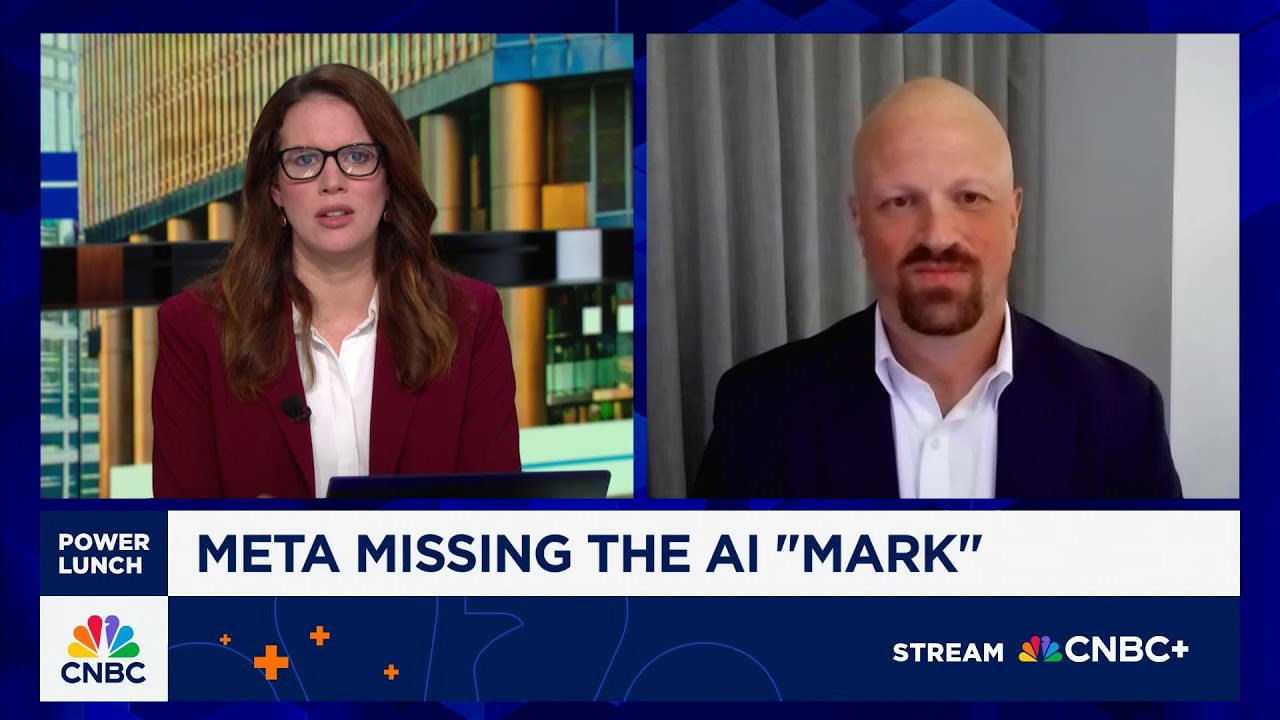Daniel Newman from Futurum Group asserts that Meta is a leading force in AI, with significant investments in models like Llama and infrastructure that support open-source development, positioning it for future growth. He contrasts Meta’s proactive strategy with Apple’s more superficial AI efforts, highlighting Meta’s focus on large-scale AI infrastructure and talent acquisition as key advantages in the AI race.
In the discussion, Daniel Newman from Futurum Group emphasizes that Meta is not lagging behind in AI, contrasting it with its previous failed metaverse venture. He highlights Meta’s significant investments in AI, such as developing the Llama models and building infrastructure that supports open-source AI development. Newman suggests that Meta’s focus on scaling and training large AI models positions it well for future growth, and that their efforts are creating a foundation that many other companies are building upon, which is a positive long-term indicator.
Newman compares Meta’s AI strategy to Apple’s, noting that while Apple has a massive user base and ecosystem, it faces different challenges. He points out that Apple’s AI efforts are largely dependent on third-party developments, like ChatGPT, and that Apple has yet to fully capitalize on AI’s potential within its own devices. Despite the hype around new Apple hardware and features, Newman argues that Apple’s AI advancements are not yet transformative, and the company is somewhat behind in creating a cohesive AI-driven future.
The conversation also touches on the missed opportunities in the metaverse, with Newman suggesting that Meta’s Ray-Ban glasses are closer to a wearable AI future than Apple’s Vision Pro, which has yet to make a significant impact. He raises the point that Apple’s focus on design and hardware innovation has not yet translated into a dominant AI or augmented reality presence. Newman implies that Apple’s approach has been more superficial, with some of its recent innovations feeling like “parlor tricks” rather than substantial technological leaps.
A notable concern discussed is the departure of Jony Ive, Apple’s legendary design chief, who is now working with OpenAI and its competitors. Newman suggests that this move could be detrimental to Apple’s long-term innovation, as Ive’s influence was central to Apple’s iconic product designs. Meanwhile, OpenAI is investing heavily—over $6 billion—in hardware and AI integration, signaling a belief that the future of AI will be hardware-centric and revolutionary, a space where Apple might be losing ground.
Finally, Newman highlights that Meta’s leadership, especially Mark Zuckerberg, is in “founder mode,” actively recruiting top talent and making strategic investments to shape the future of AI. Unlike Apple, which lacks a visionary founder figure like Steve Jobs, Meta’s aggressive approach and focus on building large-scale AI infrastructure position it as a leader in the AI race. Newman concludes that Meta’s strategic investments and internal focus give it a competitive edge, making it a major player rather than a laggard in the evolving AI landscape.
